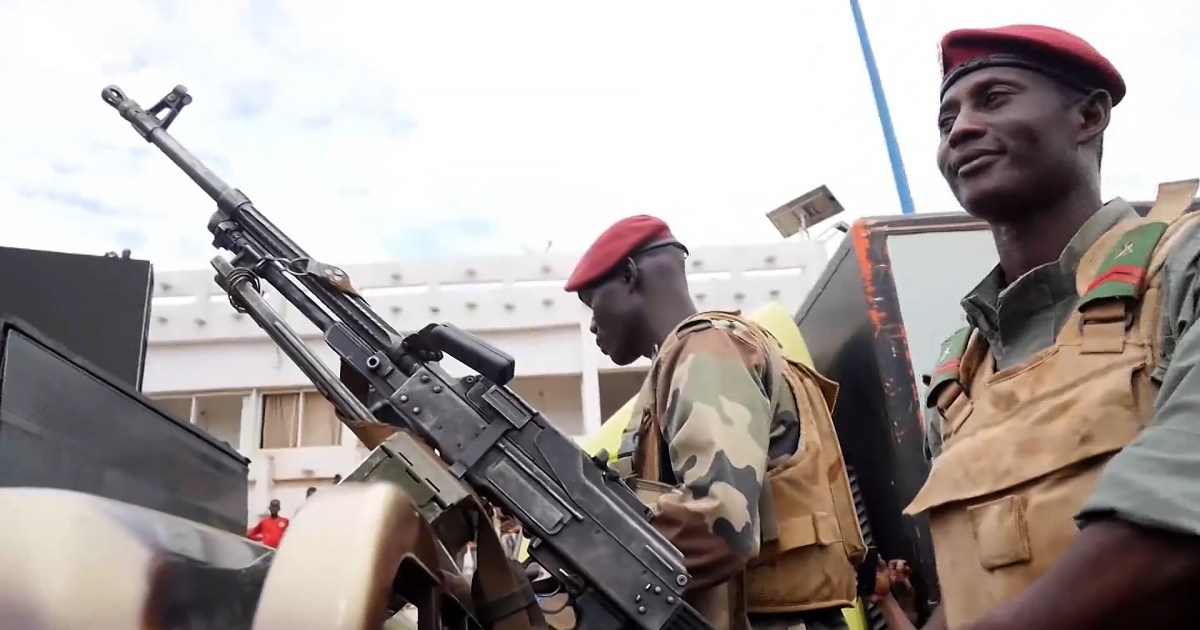Solomon Derso, Assistant Professor at the Faculty of Law and Governance Studies at Addis Ababa University, enumerated the reasons for the return of coups in West Africa to various factors, most notably: the weakness of state institutions, the decline of good democratic governance, in addition to the problems of corruption, terrorism and organized crime, the disappointment of peoples in their leaders who failed In the face of security problems.
While stressing that each country has its own circumstances, Derso told the episode (10/2/2022) of the "Scenarios" program that political conditions such as the absence of institutions - which hold the government and the president accountable - made the military carry out coups and take the measures demanded by the people.
In the opinion of the same speaker, who is also a senior expert in the Peace and Security Council of the African Union, stopping the contagion of coups in Africa depends on taking actual measures to stop this phenomenon, and searching for the various factors and conditions that create coups.
The West African region has recently witnessed the success of 3 coups in Mali, Guinea and Burkina Faso, and two failed attempts in Niger and Guinea Bissau.
Regarding the role of external forces in fueling the phenomenon of coups in Africa, Derso pointed out that there is competition between some countries. In Mali and Burkina Faso, for example, China and Russia tend to provide support to the perpetrators of coups, and they have thwarted UN Security Council resolutions on military coups in the continent.
As for the analyst specializing in African affairs, Ismail Ould Cheikh Sidna, he talked about factors that are stronger than the state on the issue of military coups in West Africa. Mali and Burkina Faso share the fact that they face the phenomenon of taking up arms in the face of the state, and despite their different motives, the common denominator between them is that the leaders who established The coups have almost the same age, and they are all commanding special forces, meaning they are from the elite of the army.
In his discussion of the causes of military coups in the continent, Ould Cheikh Sidna focused on the lack of development and the weakness of the state, and said that the only injection that prevents coups is to solve the developmental problem and keep the military away from politics, and for the state to fight immigration and unemployment and achieve security, which is the key to everything.
While pointing out that there is a problem in the formation of African armies and the running of the state, the Mauritanian guest spoke about the Senegalese model, which he said had witnessed only a coup attempt in its history, due to several factors, including the removal of the army from politics and the support of France and the United States for democracy in this country, according to his opinion.
On the other hand, the speaker criticized the role of the Economic Community of West African States (ECOWAS) and the African Union in quelling the phenomenon of coups in the continent.
corridors of intervention
Journalist and political analyst Alain Yero Ambalo from Guinea-Bissau pointed out that the contexts differ from one country to another, although Mali and Burkina Faso share the issue of the security issue. He attributed the return of military coups to the continent to a state of frustration, problems of poor governance, the absence of justice and the absence of real development projects.
He explained that Guinea-Bissau's situation is different from Mali and Burkina Faso in that there are social and ethnic problems that overlapped with political problems, noting that people in this country vote during the elections for the race and not for the political program or the president that represents the country.
Regarding the role of external factors, this journalist highlighted that the military council in Mali, for example, is linked to Russia, and most of the officers were trained in Moscow, unlike the previous generation that graduated from the French school, noting that Paris was not up to expectations in the field of combating terrorism.
He concluded by saying that countries such as France and Russia are looking for corridors to intervene in Mali and Burkina Faso, and that Guinea-Bissau receives support from Russia, China and Morocco.

